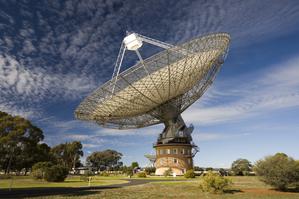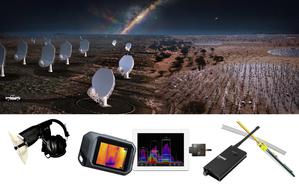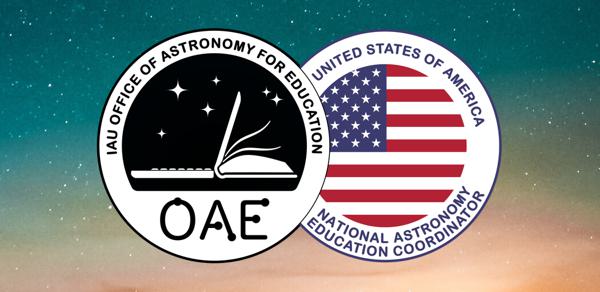Glossary term: 射電天文學
Description: 射電天文學是天文學的一個分支,專注於電磁波譜中特定區域的射電波觀測。地球的大氣層有“射頻窗口”:允許某些頻率(或波長範圍)的射電波幾乎不受阻礙地通過。這使得我們可以利用地面射電望遠鏡觀測天體射電輻射。典型的觀測頻率範圍從大約300吉赫茲(GHz)到幾十兆赫茲(MHz),對應的波長為1毫米(mm)到幾十米。在特別適合的乾燥高海拔地點,天文學家甚至可以進行亞毫米觀測,波長可達到約0.3毫米,對應頻率達到1太赫茲(THz)。大約在10 MHz的低頻限制是由於地球的電離層。這個位於大氣高層的區域含有大量帶電粒子,能反射超長射電波回到太空中。射電天文學使我們能夠觀測到來自星系和銀河系中冷氣體的輻射,如原子氫和分子氣體。通過這些觀測,天文學家可以研究稀疏的星際介質,以及恆星和行星形成的區域和過程。射電天文學還允許研究高能天體,如脈衝星和活動星系核:在這些物體內或周圍,電子在強磁場中被加速,從而發出稱為同步輻射的射電波。脈衝星以及非常亮的活動星系核(稱為類星體)都是通過射電天文學發現的,宇宙的熱大爆炸階段的遺跡,即宇宙微波背景輻射(CMB)也是通過這種方法探測到的。儘管來自太空的射電波在1930年代首次被探測到,但射電天文學直到1950年才成為觀測天文學的一個主要分支。
Related Terms:
See this term in other languages
Term and definition status: The original definition of this term in English have been approved by a research astronomer and a teacher The translation of this term and its definition is still awaiting approval
This is an automated transliteration of the simplified Chinese translation of this term
The OAE Multilingual Glossary is a project of the IAU Office of Astronomy for Education (OAE) in collaboration with the IAU Office of Astronomy Outreach (OAO). The terms and definitions were chosen, written and reviewed by a collective effort from the OAE, the OAE Centers and Nodes, the OAE National Astronomy Education Coordinators (NAECs) and other volunteers. You can find a full list of credits here. All glossary terms and their definitions are released under a Creative Commons CC BY-4.0 license and should be credited to "IAU OAE".
If you notice a factual or translation error in this glossary term or definition then please get in touch.
Related Media
帕克斯射電望遠鏡
Credit: 戴維·麥克萊納根/聯邦科學與工業研究組織 credit link
License: CC-BY-3.0 Creative Commons Attribution 3.0 Unported icons
Related Activities
SKAO and the mysteries of invisible light
astroEDU educational activity (links to astroEDU website) Description: Discover the invisible light with SKAO, the largest radio telescope in the world!
License: CC-BY-4.0 Creative Commons 姓名標示 4.0 國際 (CC BY 4.0) icons
Age Ranges:
12-14
, 14-16
Education Level:
Informal
, Middle School
, Secondary
Areas of Learning:
Guided-discovery learning
, Observation based
, Technology-based
Costs:
High Cost
Duration:
several days
Group Size:
Group
Skills:
Asking questions
, Constructing explanations










